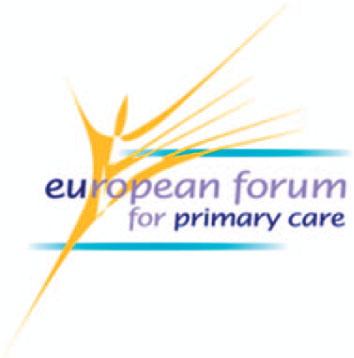
The European Forum for Primary Health Care (EFPC) held an international conference entitled ‘Twinning population health and primary care’ at the University Pompeu Fabra in Barcelona. Professor Jan De Maeseneer introduced the theme by explaining that inter-professional primary care is extremely well positioned to integrate the targets of population health with the needs of individuals.
Keynote speakers
Keynote speakers Vincente Ortun, Ivi Normet, Karl Ekdahl and Eileen Hutton introduced the audience to important topics like integration of primary and social care, successful eHealth solutions, shared responsibility in communicable disease prevention and the role of midwives in primary care. The problems in Europe in relation to the economic crisis and financial sustainability were addressed by Sarah Thomson of the WHO Barcelona Office for Health Systems Strengthening. Hernan Montenegro, health systems advisor in Geneva for the WHO gave the audience an insight in the health systems strategy of the WHO for the coming years.
Interactive sessions
A number of interactive sessions focussed on the patient and population perspective, the use of new technologies in quality assurance and health promotion, investigations in the area of primary care systems and presented the work of various primary care professional associations. An extensive list of factors linked to professional involvement in Primary Care were considered, like remuneration, lifestyle and working hours of personnel, prestige among colleagues and of general public, research and teaching opportunities, potential for career advancement, direct patient interaction, and continuity of care.
Countries experience substantial and sustained falls in public spending. In a lively discussion, speakers found that excessive reforms are not effective and that appropriate changes should be undertaken by small steps. They pointed out that there is lack of studies on the vulnerability of different health systems.
A discussion meeting, related to the EFPC position paper on effective primary care for Roma patients, generated crucial input like those provided by Roma representative Barbara Cottenie. Participants had an opportunity to listen to the examples on how the collaboration with the Health Service is experienced by Roma. She presented her work as mediator, which helps Roma in resolving health and other problems in the local community. Marga Vintgens from Pharos (The Netherlands) presented her experience with low health literacy in Roma patients and introduced communication skills, which we should practice to overcome these barriers in communication.
The session ‘meet the editors of BMC family practice and quality in primary care’ generated a lot of attention by conference delegates. Participants were made aware of the fact that academic peer-reviewed publication is an important vehicle for presenting research and policy in the future primary care. Niro Siriwardena and Christos Lionis presented common pitfalls of research in primary care.
Elections
Elections for executive and advisory board were organized during the General Assembly. Tino Marti, Cagri Kalaca, Sally Kendall, Hélène Colombani and Antoni Peris are new members in the boards. We wish them all a fruitful and active participation, which will enrich the mission of inter-professional collaboration of the Forum.
Conclusions
The conference in Barcelona provided some important conclusions:
To reduce the growing social gradient in health, engagement in a process of exchange of best practices, inter-professional cooperation at all levels, and strengthening primary care are prerequisites for the future organization of health care in Europe.
Professional associations at European and national level are challenged to play their pivotal role.
The Horizon 2020-research programme should focus on studies on primary care based interventions, starting from the needs of patients.
